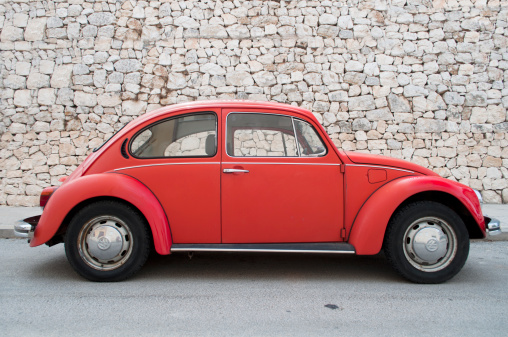The Volkswagen Beetle — one of the most popular cars ever built, with a history stretching back to Nazi Germany — has reached the end of its long road.
Production of the last version of the Beetle will halt Wednesday at the VW plant in Puebla, Mexico, reports the Associated Press, adding that the car “remains a landmark in design, as recognizable as the Coca-Cola bottle.”
The Beetle’s complex story began in 1938, when Adolf Hitler directed Austrian engineer Ferdinand Porsche to design a “people’s car” (Volkswagen) that would spread auto ownership like the Ford Model T did in the United States earlier in the century.
But World War II erupted in September 1939, when Nazi forces attacked Poland, and a huge factory intended to build VWs was diverted to military vehicle production, using forced laborers.
After the war, British occupation authorities re-launched VW as a civilian automaker, and, the AP says, by 1955 “the millionth Beetle … had rolled off the assembly line.”
The Beetle’s unusual design — rounded nose and passenger compartment, air-cooled engine over the back wheels — attracted many American buyers.
“The United States became Volkswagen’s most important foreign market, peaking at 563,522 cars in 1968, or 40% of production,” the AP says. “Unconventional, sometimes humorous advertising … urged car buyers to ‘Think small.’”
The inexpensive, durable Beetle — and its carryall cousin the VW Bus — were especially popular among hippies and other young Americans in the 1960s and ‘70s.
Beetle production in Germany ended in 1978, but a second factory had been operating since 1967 in Puebla, where it continued until 2003. The same plant also built the retro “New Beetle,” beginning in 1998.
Now, says the AP, “The last of 5,961 Final Edition versions of the Beetle is headed for a museum after ceremonies in Puebla on July 10 to mark the end of production.”
